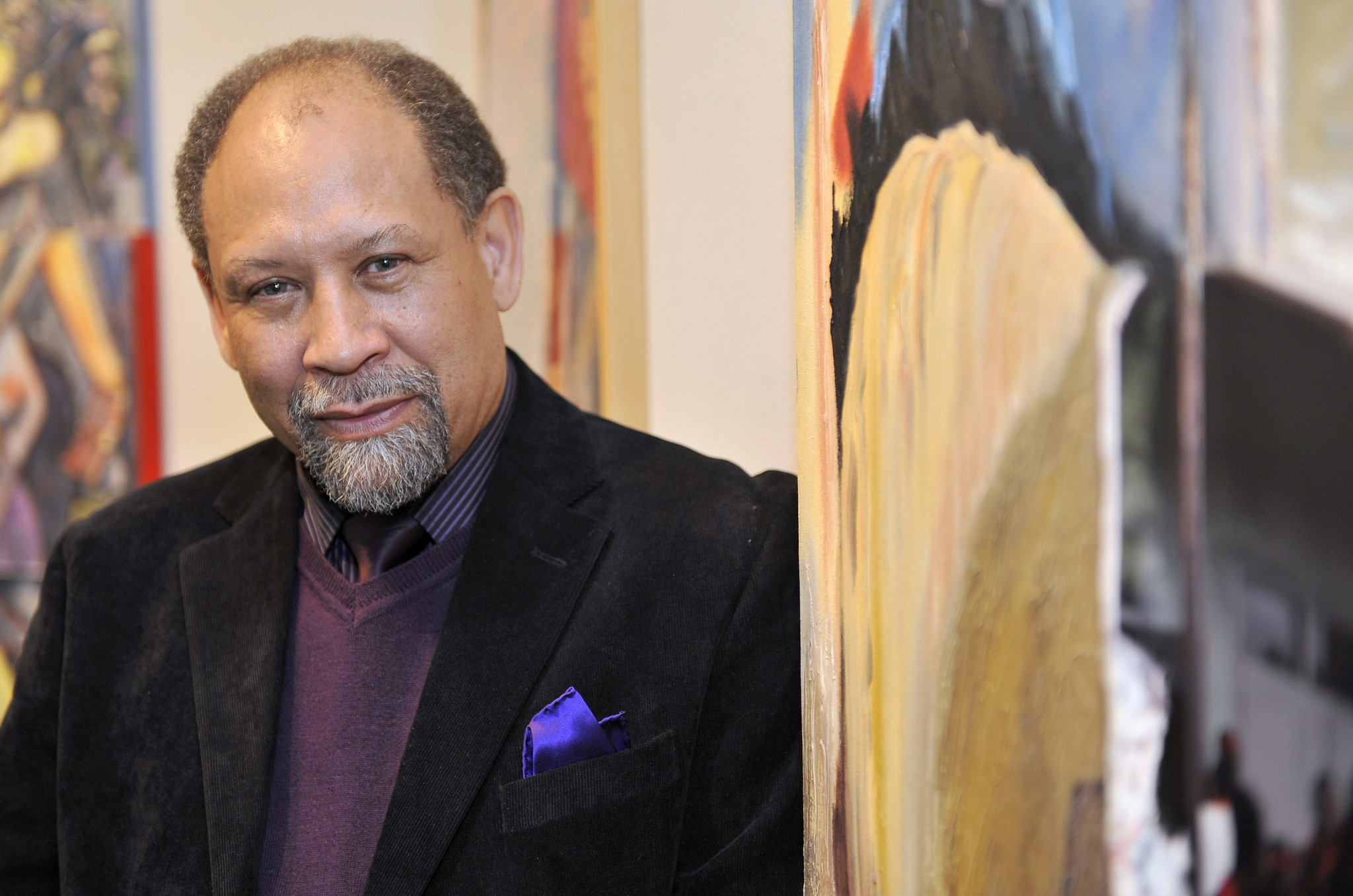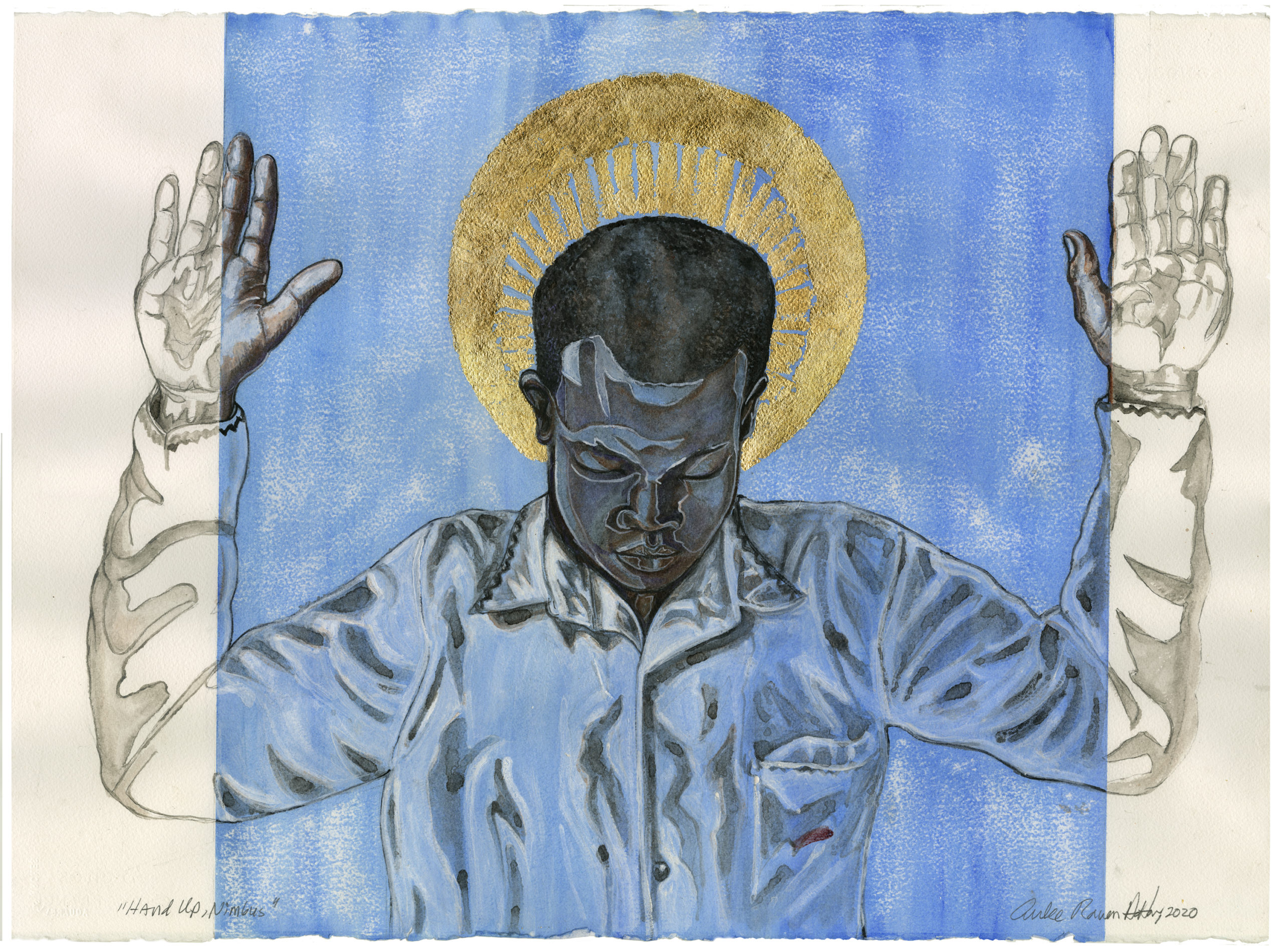The Association of Print Scholars
invites you to the sixth annual
Distinguished Scholar Lecture
“Being an Artist, Printmaker, and Creative Collaborator”

Curlee Raven Holton
Director, David C. Driskell Center, University of Maryland
In his talk, Dr. Curlee Raven Holton will discuss his personal and professional journey to becoming an artist and the creative possibilities that he discovered through printmaking. Reflecting on his own experiences and relationships with Robert Blackburn, Elizabeth Catlett, and David C. Driskell, among others, Dr. Holton will trace how his passion for collaboration – so deeply inherent in the printed medium – grew out of a desire to build a community with a shared belief in the transformative power of art, and how that passion has been, and can be, a source for self-liberation and social engagement.

Curlee Raven Holton (American, b. 1951)
Hands Up, Nimbus, 2020
Digital/serigraph, gold leaf, 20 x 24 in.
Edition of 30
Raven Fine Art Editions
An artist, director, professor, and scholar, Curlee Raven Holton has exhibited widely, and his artwork can be found in the collections of several major international art museums. For nearly three decades, Dr. Holton has served as the David M. and Linda Roth Professor of Art at Lafayette College in Easton, PA, where he has taught printmaking and African American art history. He is the founder of the Experimental Printmaking Institute and Raven Fine Art Editions. Currently, Dr. Holton is the Director of the David C. Driskell Center at the University of Maryland, which provides an intellectual home for artists, museum professionals, art administrators, and scholars interested in broadening the field of African diasporic studies.
The virtual lecture will be held on Friday, May 7, 2021, from 3:00-4:30 PM (EST). Participants will be welcome to ask questions during the Q&A after the lecture. The lecture is free and open all, but pre-registration is required. To receive the Zoom link, please register here.
Please note that the talk will be recorded and made available on APS’s website after the event.
About the Association of Print Scholars
The Association of Print Scholars (APS) is a non-profit organization that encourages innovative and interdisciplinary methodological approaches to the history of printmaking. By maintaining an active website, sponsoring working groups, and hosting periodic symposia and lectures, APS facilitates dialogue and community among its members and promotes the dissemination of their ideas and scholarship. APS supports research grants and sponsors projects in the digital humanities that advance knowledge of printmaking. Membership is open to anyone whose research focuses on printmaking across all geographic regions and chronological periods.
